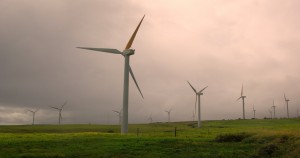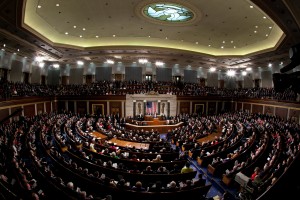25 item(s) were returned.
United States Senator, State of Hawaii
Member, Senate Appropriations Committee
My legislation is based on a very simple idea. And that idea is that there ought to be a level playing field between fossil fuels and clean energy. Right now, fossil fuels subsidies in the tax code, for the most part, are permanent and the clean energy tax credits, for the most part, are temporary. Now, there is a good reason to make tax credits, subsidies, and incentives temporary in the tax code; from a policy standpoint, that requires legislators to reevaluate how a policy is working over time and to make modifications. But when you make a tax incentive… [more]
View InsightPresident
Reishus Consulting, LLC
The New York Attorney General has been investigating Exxon Mobil for failing to disclose to its investors its climate risk, or the risk that climate change may have on the value of the company’s assets, including its extensive oil reserves, which some claim must remain in the ground if necessary future reductions in carbon emissions are to be achieved. As the controversy around Exxon Mobil’s carbon-related financial reporting continues, other entities are moving forward to address so-called climate change or “carbon asset” risk. In fact, the institutional investment fund CalPERS now requires that companies it chooses to invest in have… [more]
View InsightThe Senate recently passed the bipartisan Energy Policy Modernization Act (S.2012) cosponsored by Senators Murkowski and Cantwell. One aspect of the bill that is creating controversy revolves around provisions characterizing biomass as a renewable, carbon-neutral energy source. This new, definitive characterization has sparked significant disagreement. Proponents argue that the carbon emitted is part of a closed-loop system through which plant regrowth captures CO2 emissions. The Biomass Thermal Energy Council expressed its support of the carbon-neutral designation in the legislation, indicating that the bill puts “clean, highly efficient energy from biomass on a better footing to contribute to our country’s renewable… [more]
View InsightFounding Director, Initiative on Communication and Sustainability
The Earth Institute, Columbia University
Transitioning to a non-polluting energy menu and safe climate in a world of growing energy needs and persistently abundant fossil fuels is a tough task, whatever policy path you favor. And realistically, there will be no single policy path, as the flexible architecture of the Paris climate agreement reflects. In the United States, for example, there are places where new nuclear plants have a chance, and places where solar and wind power can have a greatly increased role. In every country, in fact, with its own unique energy mix, the challenge posed by simple inertia in physical systems and in… [more]
View InsightLead Senior Economist
Environmental Defense Fund
What determines the cost of a ton of coal? Is OPEC an oligopoly? Should we subsidize low-carbon energy or tax fossil fuels? Do Prius owners drive more? These are among the questions I cover in my Economics of Energy class. I’ve taught this class at Columbia University’s School of International and Public Affairs for the past five years. I hope to receive your feedback on how to improve this course. The course has two goals: to provide a set of tools to approach these and many other fundamental questions in energy economics, and to do so in plain English. Last… [more]
View InsightExecutive Director
Environmental and Energy Study Institute
According to the EPA, its proposed Clean Power Plan (CPP) would lead to a 30 percent cut in carbon emissions from the power sector by 2030, compared to 2005 levels. The CPP sets a customized goal for each state, which takes into account its existing policies and the unique structure of its energy system. The current draft regulation gives states interim goals for 2020-29, and a final target for 2030. The EPA proposal offers a great deal of flexibility for states to choose how best to achieve these emissions reduction goals. The CPP suggests four “building blocks” that states can… [more]
View InsightOn Tuesday, January 20th 2015, President Obama will deliver the State of the Union address (SOTU), and energy and climate will likely play a prominent role. In last years’ SOTU, President Obama outlined an all of the above strategy: increasing domestic oil and gas production, cutting red tape, phasing out fossil fuel subsidies and addressing climate change. However, a lot has changed in the last year. Republicans now control both chambers of Congress, oil prices are at their lowest point since 2009 and the Clean Power Plan has impacted the policy landscape both domestically and abroad. The administration just announced… [more]
View InsightPresident
Micro-Utilities, Inc.
An analysis has been made to determine if there would be enough electricity in the US by 2050 to support a carbon-free future to avoid the worst effects of climate change. Assuming that carbon capture and sequestration is not practical, a mix of nuclear and renewable energy power plants was examined. Existing fossil power plants and nuclear plants represent 86% of the electricity that was produced in 2012. By 2050, to be carbon-free, all of these fossil plants would have to be phased out, while all present nuclear plants would have reached the end of their operating licenses. According to… [more]
View InsightSenior Policy Analyst
Information Technology and Innovation Foundation
Most clean energy advocates believe that the world has all the low-carbon technologies needed to effectively address climate change. In their view – what we describe as the Clean Energy Deployment Consensus – the world doesn’t need technology breakthroughs, but political breakthroughs to drive widespread deployment of clean energy technologies. This translates to a policy environment heavily weighted towards deployment subsidies, mandates, and carbon prices. But The Information Technology & Innovation Foundation (ITIF) argues in its new report, “Challenging the Clean Energy Deployment Consensus,” that the world needs a more comprehensive Innovation Consensus that focuses on developing and deploying affordable… [more]
View InsightExecutive Director
The Solar Foundation
There is an investment vehicle available to oil and natural gas development that is not available to renewable energy resource projects. There is a current effort in Congress to change that situation. Most political leaders today claim they support an “all of the above” energy strategy. Yet solar and other renewable energy resources are currently restricted by the lack of access to master limited partnerships (MLPs). MLPs are business structures that are taxed as a partnership, but whose ownership interests are traded like corporate stock on a market. MLPs have the advantage of avoiding double taxation. Projects done through MLPs… [more]
View Insight








